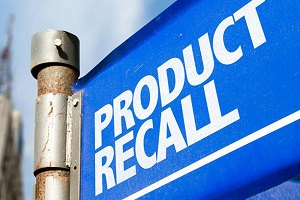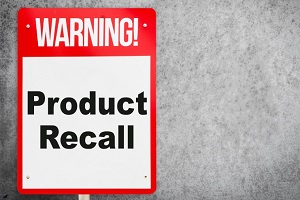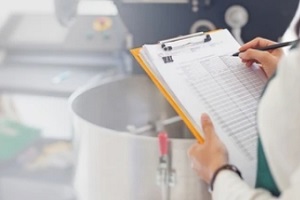 A product recall is when manufacturers remove entire batches of products from customers or marketplaces. These are damaged, unsafe goods and any consumer who has used them is eligible to receive compensation.
A product recall is when manufacturers remove entire batches of products from customers or marketplaces. These are damaged, unsafe goods and any consumer who has used them is eligible to receive compensation.
Product recalls are very important to buyers because unsafe products can kill or harm people if not removed from the market in time. However, they can be severely problematic for businesses. Product recalls are costly and can result in lawsuits, product liability claims, hefty fines, settlement costs, governmental prosecution, and exorbitant legal fees. And this doesn’t even cover the damage to reputation and future sales.
The problem is that general liability insurance doesn’t cover these expenses, and businesses often end up paying them out of pocket. However, product recall insurance can provide businesses with protection in these circumstances.
How Does Product Recall Insurance Work?
The policy design of product recall insurance protects businesses with third-party or first-party losses that can occur in case of a safety violation that mandates recalling a product from shelves.
There has been a significant increase in product recall due to stricter product safety rules and regulations over the past decade. Moreover, manufacturers rely on third-party logistics (3PL) and global supply chain services to ship products across the globe, increasing the chances of errors that can harm and damage the products.
What Is Product Recall Trigger?
Product recall insurance is triggered when a manufacturer, buyer, or consumer watch group finds defects that could hamper performance, harm users, or lead to legal disputes.
Let’s suppose a food and beverage company produces a fresh batch of beverages, but there is a contaminant in it that can cause severe health damage to people.
The company would publicly make announcements on various platforms, asking customers to return or discard the product due to its dangers. They will create a public relations campaign to tackle the situation and may give full refunds or replacements to customers.
In some cases, a product recall is mandatory, i.e., required by the Consumer Product Safety Commission (CPSC) or sometimes wholesale distributors, vendors, or third-party companies.
Otherwise, the manufacturers can recall the product shipment themselves, as discussed above, if it contains any dangerous contamination which can cause human and material losses.
What Does Product Recall Insurance Cover
 There are mainly two types of expenses covered by product recall insurance: “first-party expenses” and “third-party expenses.”
There are mainly two types of expenses covered by product recall insurance: “first-party expenses” and “third-party expenses.”
First-party expenses are known as direct expenses of a product recall, including handling customers, the shipping cost of the products, warehouse and storage expenses, product disposal cost, and the cost of extra personnel required to handle the task of recalling products.
Third-party coverage is used when your products sell under the 3PL service. Third-party expenses can include the cost to recall the 3PL service, which will recall back or replace the products, and lost payments to third parties for using your product.
Product recall Insurance typically covers direct recall costs, third-party financial losses, replacement costs, consultancy costs, and loss of contract or revenue. The insurance will compensate the business in case of any of the losses mentioned above.
Do You Need Product Recall Insurance?
If you manufacture or mass produce products that can possibly endanger lives if something goes wrong, it’s best to have coverage for product recall.
Two events are covered by product recall insurance:
- Accidental contamination
- Malicious product tampering
Most product recall coverage policies require you to report physical body injuries, symptoms, or death within 365 days of usage. Food and beverages manufacturers need the broadest form of coverage that includes the following:
Cost Of Informing The Customers
Not long ago, companies used televisions and newspapers to inform the public, but it is done using social media and other digital platforms in modern times, the costs of which are included in the coverage.
Cost Of Damaged Contaminated Product
Contaminated products must be destroyed and disposed of out of people’s reach.
Recovery Cost
If the products can be repaired, cleaned, or reprocessed, this policy may provide coverage for related incurred costs.
Extortion Cost
Insurance can cover extortion or black mail-related expenses as well as any costs of dealing with the recall issue.
Crisis Consulting
Crisis consulting helps companies get through the process of a product recall through media response support and controlling the situation, and your insurer will pay all costs.

Government Oversight
The United States government maintains strict oversight of companies and product safety regulations. If the government determines that your product has potential danger to human health and you have no product recall plan or insurance, it may have far-damaging consequences to your business.
Let MFE Insurance All Your Business Coverage Needs
From 2013 to 2020, the Food and Drug Administration (FDA) had an average of 8,200 calls per year regarding product safety issues related to health and illness. These calls included various products, and the numbers are growing.
Securing a product recall insurance policy can protect your business from substantial financial losses. Contact MFE Insurance today to get a custom plan.
